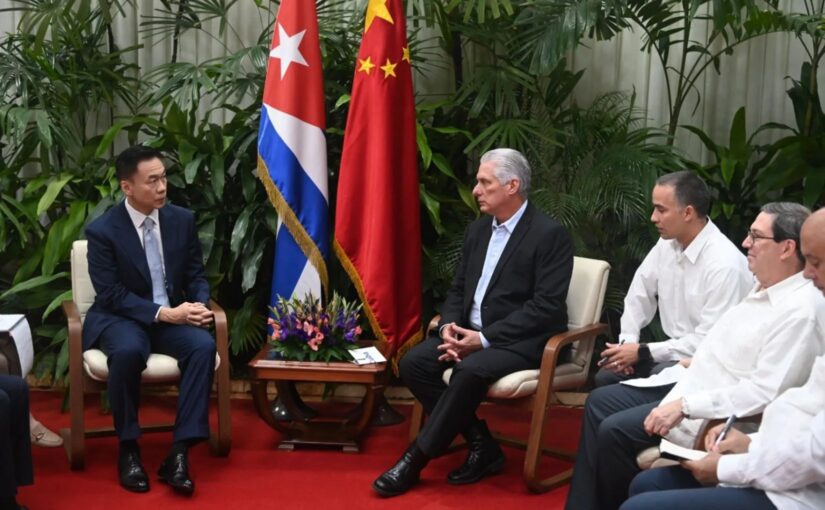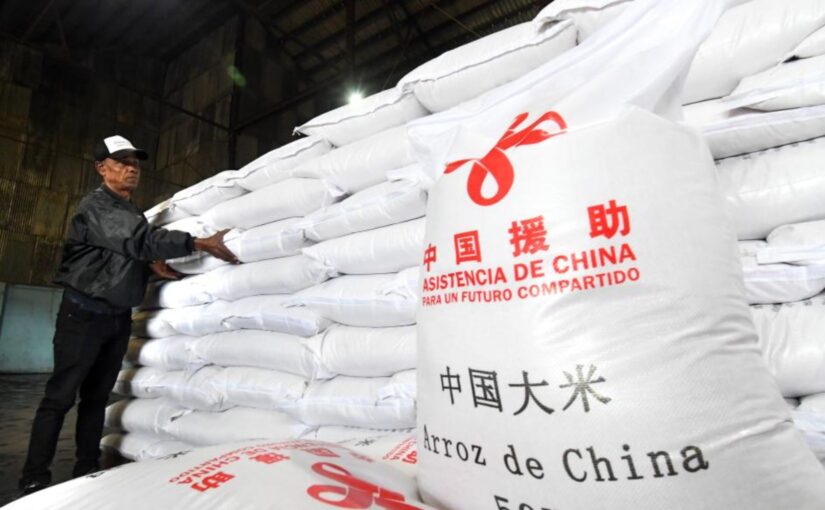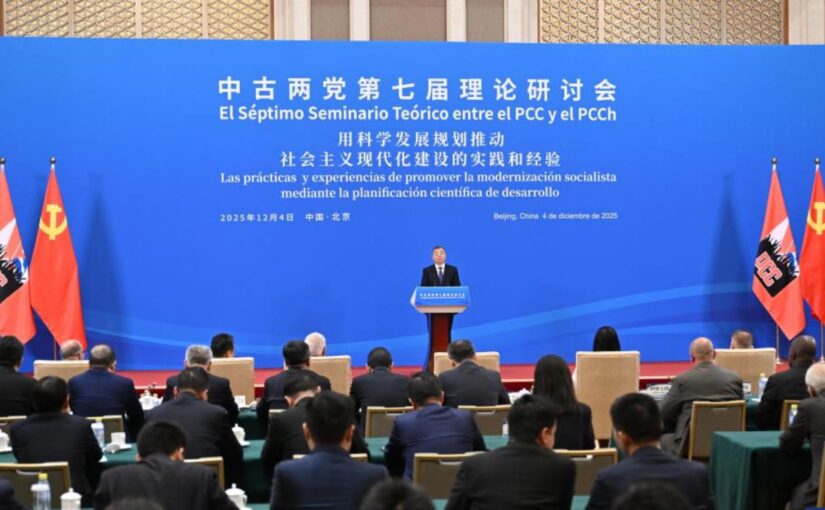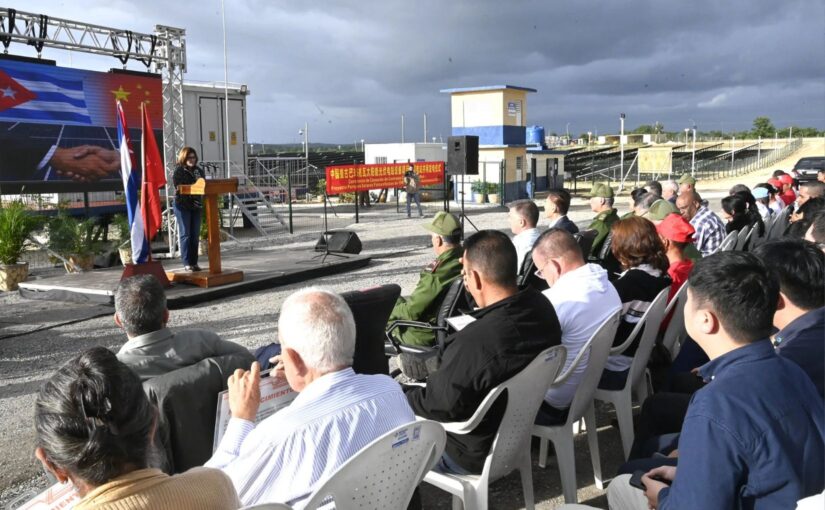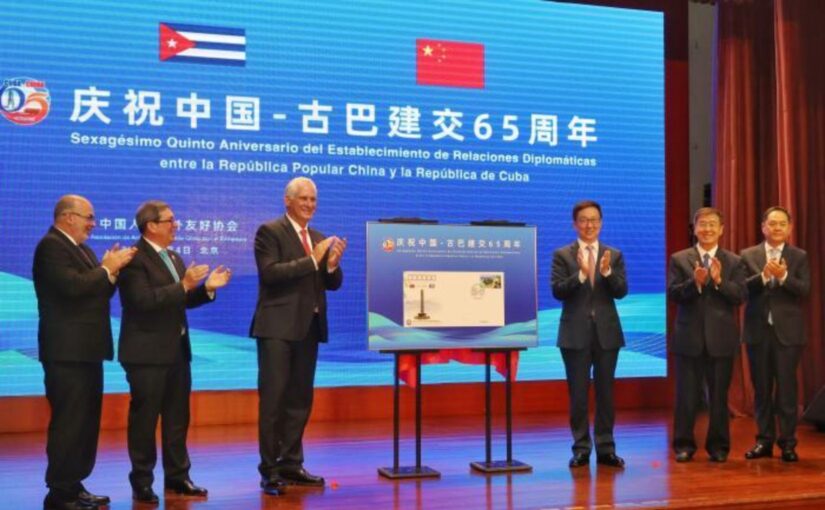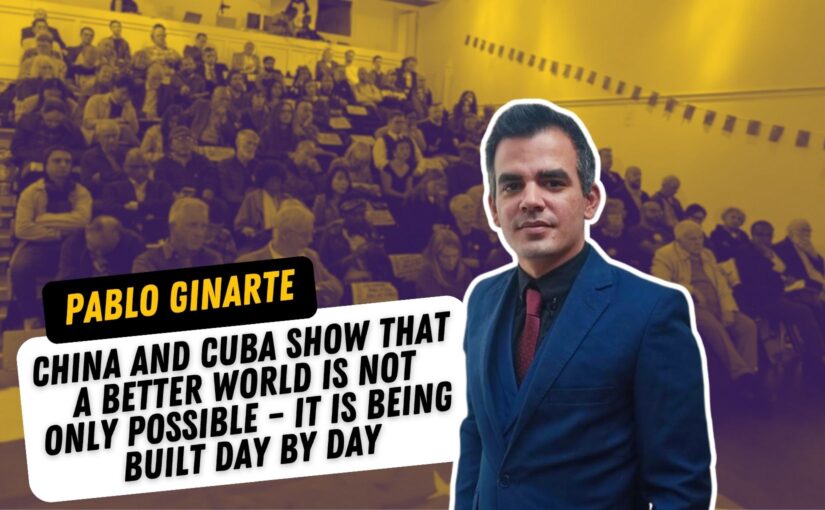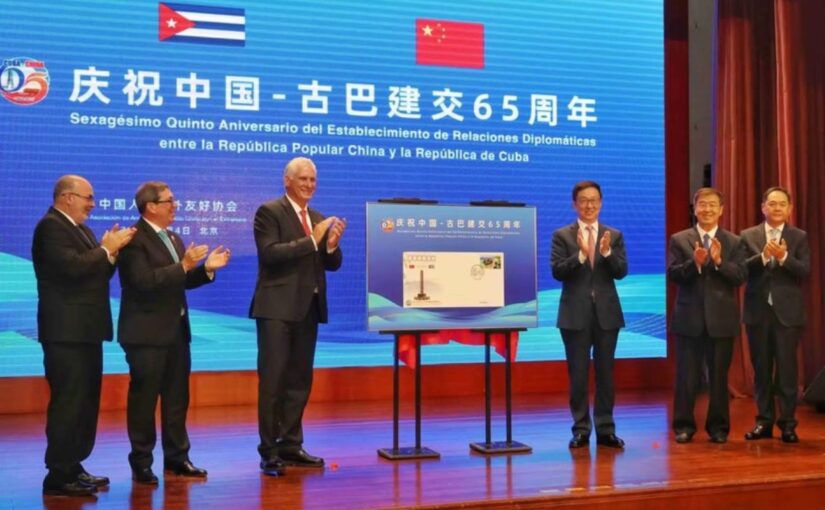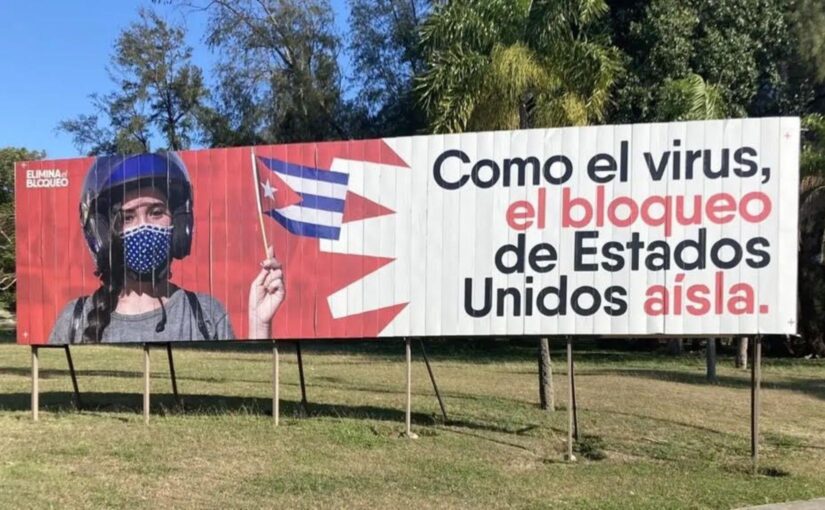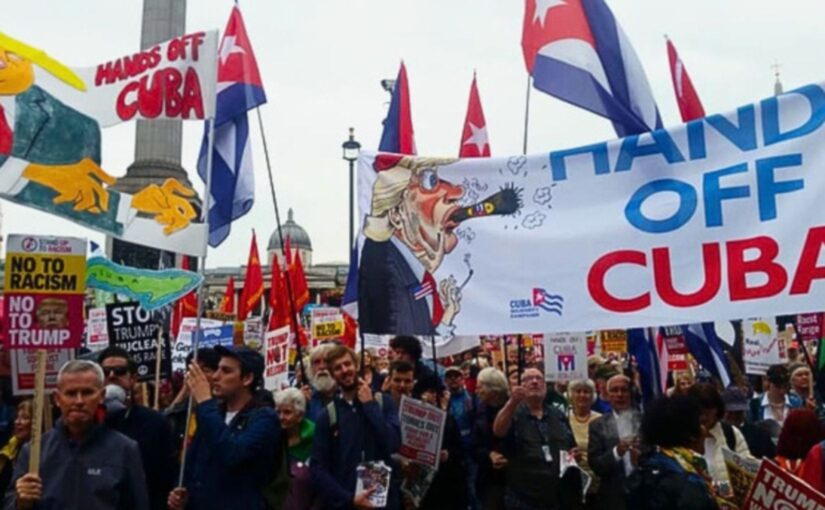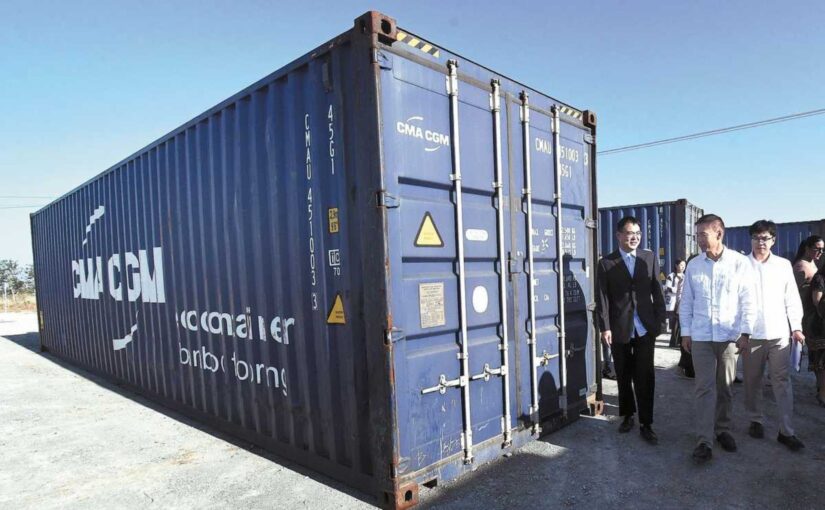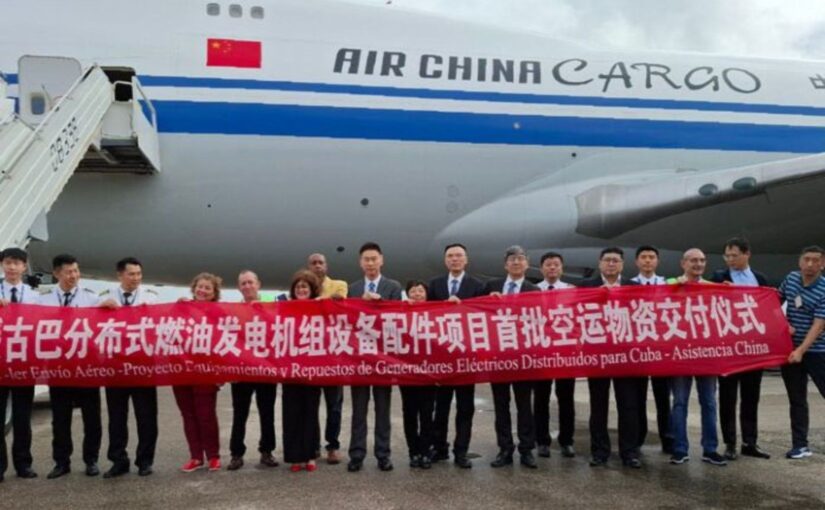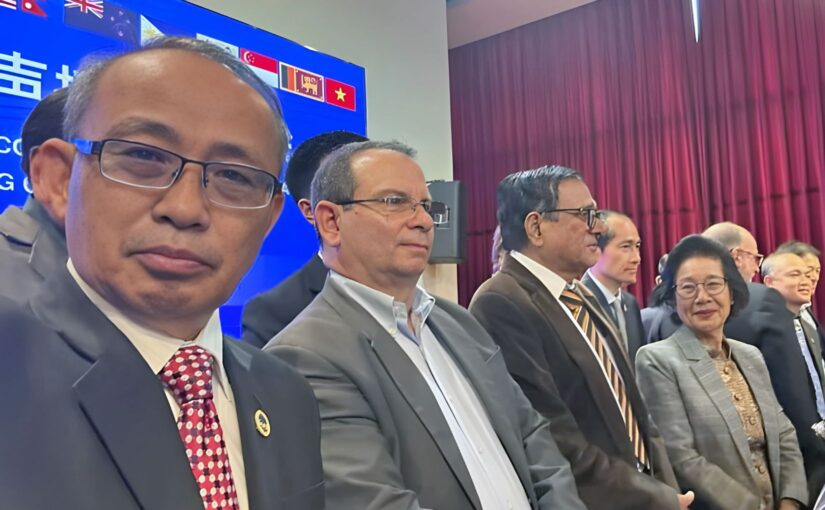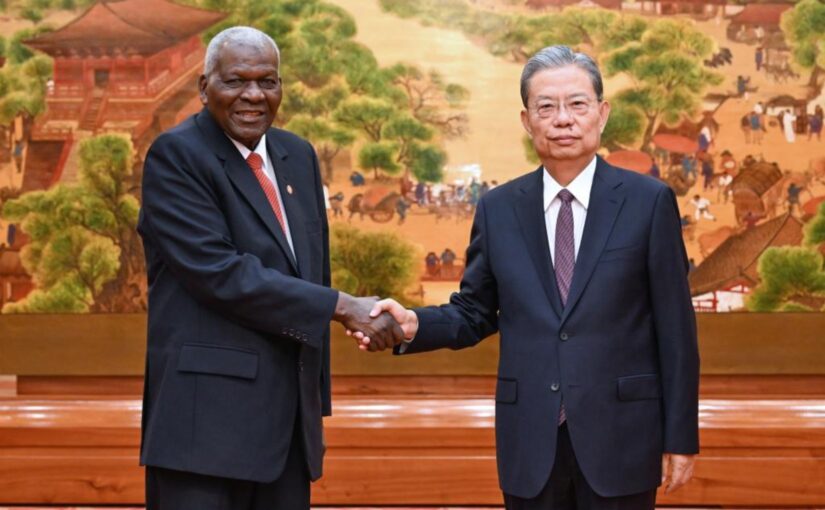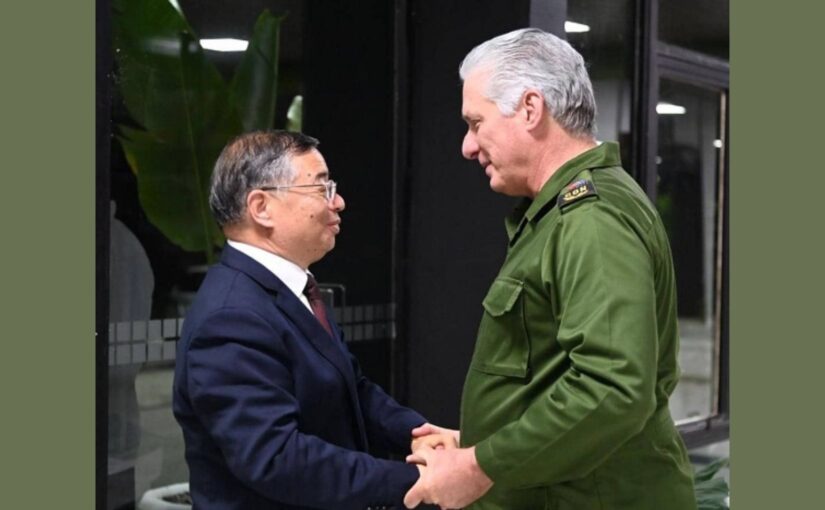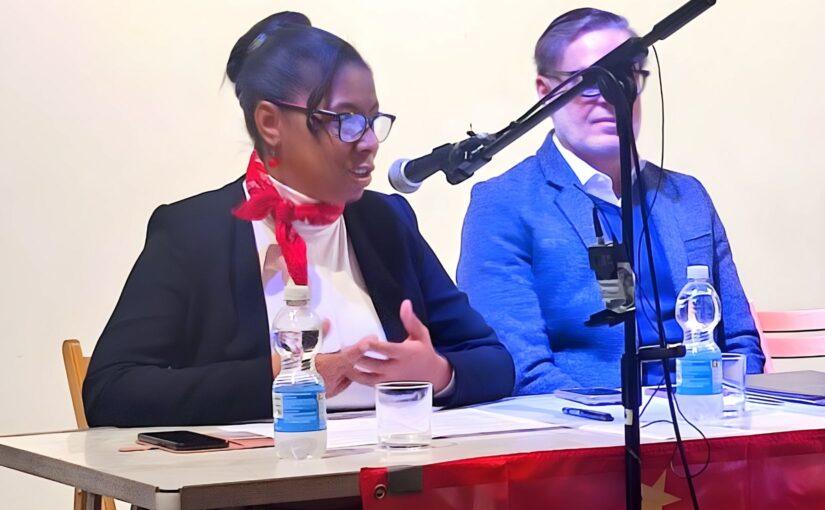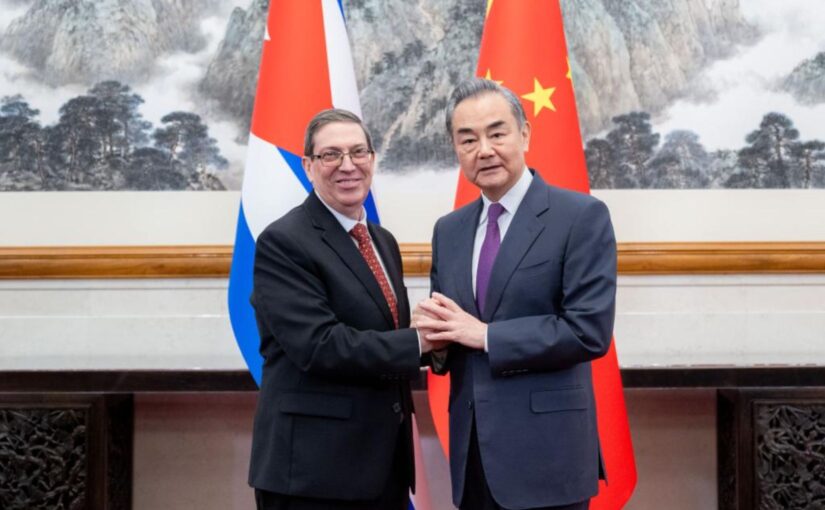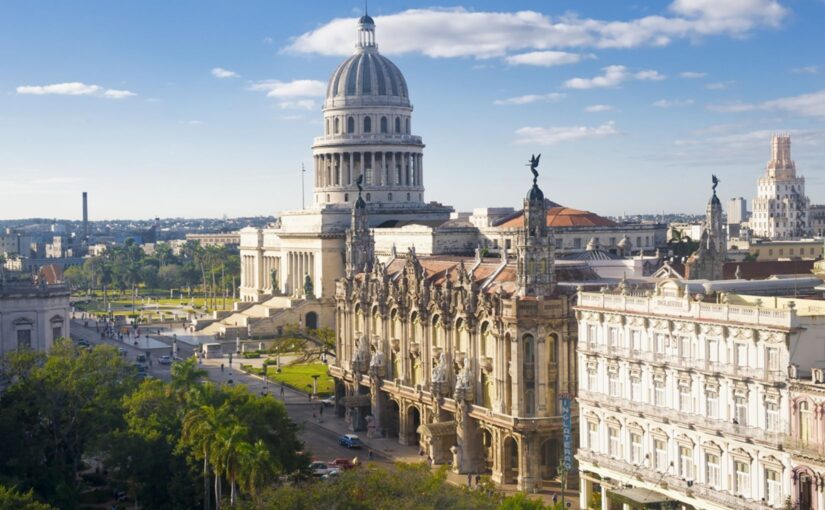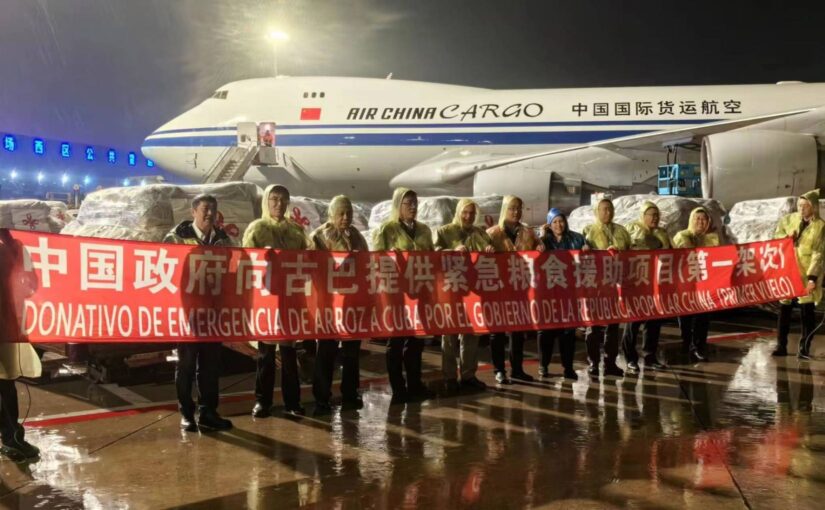Cuba may slowly ease its crippling blackouts and strengthen its electricity grid as it begins building seven solar parks with the first batch of equipment from China.
The Chinese aid will help Cuba’s plan to build 92 solar installations by 2028, adding about 2,000 megawatts to the island’s power grid and help reduce dependence on fossil fuel imports. Once completed, the project will significantly boost Cuba’s strained power system, which currently has a capacity of 7,264 MW.
According to Maribel Aponte-Garcia, an economist and professor at the University of Puerto Rico, Rio Piedras Campus, the solar parks will also contribute to Cuba’s logistical and financial sovereignty by strengthening the country’s logistics capacity in the Greater Caribbean. For example, the Port of Mariel has the potential to be connected into logistics corridors in the China-Russia-Latin America axis, which can help avoid United States-controlled transit points such as the Panama Canal.
“Cuba is much more than an island with an energy crisis. It’s a critical logistics node in the Greater Caribbean, with direct access to maritime routes that connect the Atlantic with the Gulf of Mexico, Central America and South America.”
China, a major global exporter of solar panels, has emerged as a “comrade and brother” to Cuba, reaffirming its commitment to supporting the island’s energy transition, said Ruvislei Gonzalez Saez, a professor at Cuba’s Centre of Research for International Policy.
“Chinese cooperation in installing solar parks is extremely strategic, particularly in the energy sector,” he noted. In 2018, Cuba formally joined the Belt and Road Initiative, and three years later it joined the Belt and Road Energy Partnership, which aims to boost multinational energy cooperation.
The following article was originally published by China Daily.
Cuba may slowly ease its crippling blackouts and strengthen the electricity grid as it begins building seven solar parks with the first batch of equipment from China.
The Chinese aid helps Cuba’s plan to build 92 solar installations by 2028, adding about 2,000 megawatts to the island’s power grid and help reduce dependence on fossil fuel imports. Once completed, the project would significantly boost Cuba’s strained power system, which currently has a capacity of 7,264 MW.
Installation work is set to begin soon in Artemisa, about 50 kilometers west of Havana, where the equipment arrived late last month. Additional solar parks are planned for the provinces of Pinar del Rio, Las Tunas, Holguin, Granma and Guantanamo. More materials from China are expected in the coming months.
“Chinese investment in solar energy in Cuba is a joint commitment to energy sovereignty, South-South cooperation, and the multipolar reconfiguration of global trade and logistics,” said Maribel Aponte-Garcia, an economist and professor at the University of Puerto Rico, Rio Piedras Campus.
The solar parks will also contribute to Cuba’s logistical and financial sovereignty by strengthening the country’s logistics capacity in the Greater Caribbean, she said.
For example, the Port of Mariel has the potential to be connected into logistics corridors in the China-Russia-Latin America axis, which can help avoid United States-controlled transit points such as the Panama Canal.
“Cuba is much more than an island with an energy crisis,” Aponte-Garcia said. “It’s a critical logistics node in the Greater Caribbean, with direct access to maritime routes that connect the Atlantic with the Gulf of Mexico, Central America and South America.”
Over time, the solar park could become a key component of an emerging South-South architecture, in which renewable energy powers technological platforms, ports and autonomous corridors, she added.
China, a major global exporter of solar panels, has emerged as a “comrade and brother” to Cuba, reaffirming its commitment to supporting the island’s energy transition, said Ruvislei Gonzalez Saez, a professor at Cuba’s Center of Research for International Policy.
Last year, China exported enough solar panels globally to generate 235.93 gigawatts of power, up 13 percent year-on-year, according to US renewables research firm InfoLink Consulting.
Gonzalez emphasized the significance of Chinese cooperation in advancing Cuba’s renewable energy sector.
“Chinese cooperation in installing solar parks is extremely strategic, particularly in the energy sector,” he said, adding the effects are not only political and economic but also show how it can improve the quality of life for Cubans.
Aponte-Garcia said China has long been an active partner of Cuba in terms of trade and investment, with participation in projects such as the Mariel Special Development Zone and the energy sector.
In 2018, Cuba formally joined the Belt and Road Initiative, and three years later it joined the Belt and Road Energy Partnership, which aims to boost multinational energy cooperation.
Beijing and Havana have signed several construction and energy deals aimed at supporting cooperation between China and Latin America.
Beyond energy coordination, China also continues to invest in projects linked to the production of medicines, biotechnology and agriculture, Gonzalez said.
Cuba joined the BRICS+ grouping as a partner state, which could drive integration with the bloc. BRICS+ is an intergovernmental organization that includes Brazil, China, India, Russia and South Africa, along with a growing number of countries such as the United Arab Emirates.
Further, an increased presence of Chinese investments in Cuba is expected, though the US blockade against Cuba “can make some economic-financial operations and processes difficult”, Gonzalez said.
